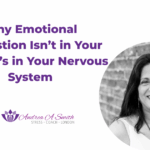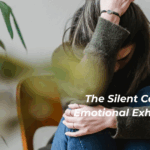Have you ever dragged yourself out of bed on a Monday morning, hoping the weekend had given you more time to rest after a long workweek? You’re not by yourself. Burnout has developed as a severe mental health concern in our fast-paced digital era, with the unprecedented Covid-19 pandemic exacerbating its prevalence.
The World Health Organisation (WHO) reports that anxiety and depression rates have increased by 25% globally in the first year of the pandemic. Feeling depressed and anxious has established itself as a major issue, lingering even after lockdowns.
A Closer Look at the Anatomy of Burnout
Burnout is a state of excessive weariness caused by persistent feelings of overwhelm. It results from prolonged emotional, bodily, and mental stress, and it can drastically impact your mental and physical well-being.
Early signs of being burned out include detachment from your work, unusual irritability and decision-making issues. Physical fatigue that is not relieved by rest or sleep is another symptom. In a cruel twist, burnout sometimes leads to sleep difficulties, exacerbating feelings of mental and physical exhaustion.
Remote employment during lockdowns has fostered an ‘always-on’ work culture in which omnipresent online accessibility and rising job expectations have become the norm. According to a recent study, workers in nations such as the United Kingdom, Canada, and the United States have increased their computer screen time by more than two hours per day since the outbreak.
Who’s Getting Burnout?
Like all mental health conditions, burnout does not discriminate among its sufferers, albeit some populations appear to be more vulnerable. Women are 32% more likely than males to feel burned out, according to a Future Forum survey that examined over 10,700 workers in six nations. Burned-out also affects young professionals and intermediate managers, with those under 30 being 29% more susceptible and middle managers being at risk at the highest risk at 40%.
Beyond Medication in the Treatment of Burnout
Despite the prevalence of stress and anxiety, finding the correct aid and support can be difficult. Medication is frequently used to begin treatment for concomitant illnesses such as depression and anxiety. However, true knowledge and appropriate stress management are critical in burnout recovery.
Current medical advances provide useful insights into individual stress thresholds, which aid in developing tailored rehabilitation regimens. It’s important to remember that stress causes mental and physical burnout, demanding a multifaceted approach to treatment.
A growing body of research and anecdotal evidence supports incorporating mindfulness practices like meditation and yoga into treatment programmes. This method targets the underlying causes of mental health disorders and burned out by providing individuals with self-help tools that may be used anywhere, at any time. A life coach near me and a certified life coach can help with mental health and wellbeing. So let’s talk wellbeing.
Burnout: The Hidden Costs
Burnout may permeate all aspects of life if left untreated, negatively affecting performance, productivity, and relationships. Additionally, untreated burnout increases the probability of using narcotics or alcohol as a coping method.
According to a joint analysis by the Mental Health Foundation and the London School of Economics and Political Science (LSE), mental health disorders cost the UK economy £117.9 billion each year.
Employers have a vital role in recognising and managing job burnout. This entails developing a friendly workplace that stimulates open conversations about mental health, detects early signs of burnout, and provides staff with practical coping stress management techniques for workplace stress and work life balance.
As you strive for a more balanced work-life balance, your immediate priority should be assisting other people in your circle experiencing burnout. Giving them the knowledge and tools to handle stress will improve their chances of recovery and overall quality of life.
Finally, fighting being burned out allows us to alter our work culture by valuing the workforce’s well-being. A healthy and happy workforce benefits individuals and is critical to an organisation’s success and survival.
Without question, the best cure is prevention, which necessitates a paradigm shift in global work cultures and our as professionals’ expectations. You are on the right track towards a better work-life balance that reduces the danger of being ill. Meanwhile, you and others around you must provide those suffering from burnout with effective support, understanding, and stress management techniques to help them recover.
‘Burnout is nature’s way of telling you, you have been going through the motions your soul has departed; you are a zombie, a member of the walking dead, a sleepwalker. False optimism is like administrating stimulants to an exhausted nervous system’ Sam Keen
For you to come back from challenges as a professional, the first step is realising you are suffering from it and then taking steps immediately to help yourself. Let me know if you want to chat hello@andreaasmith.com










